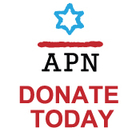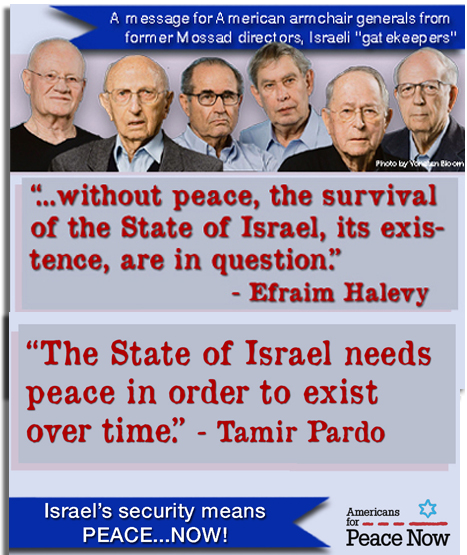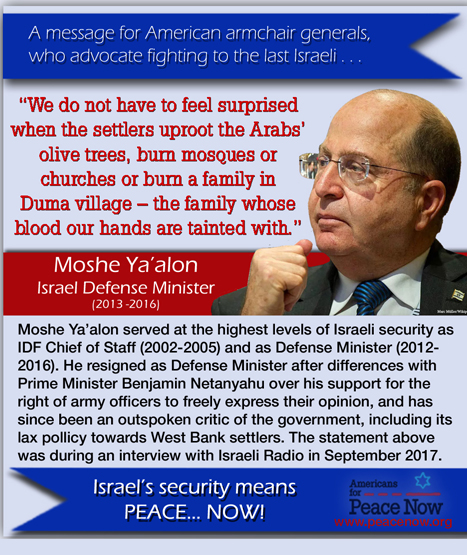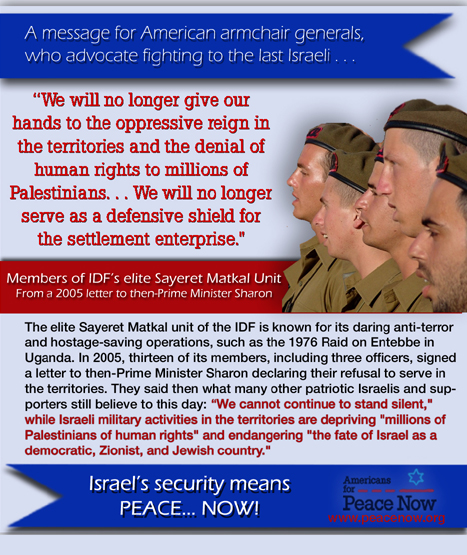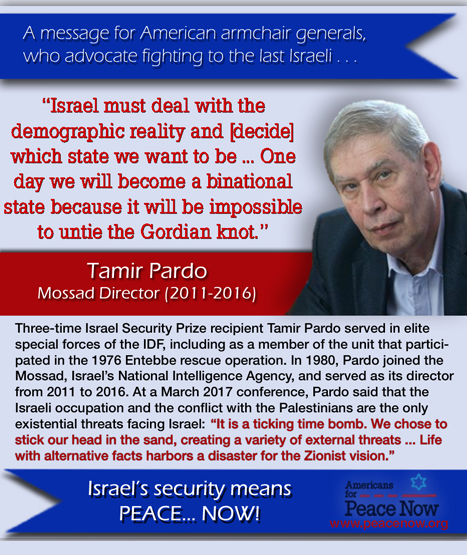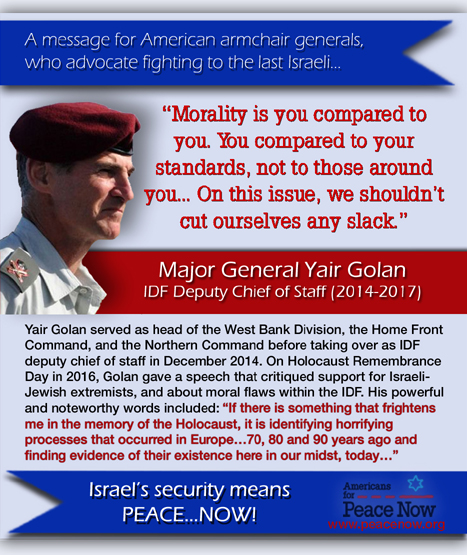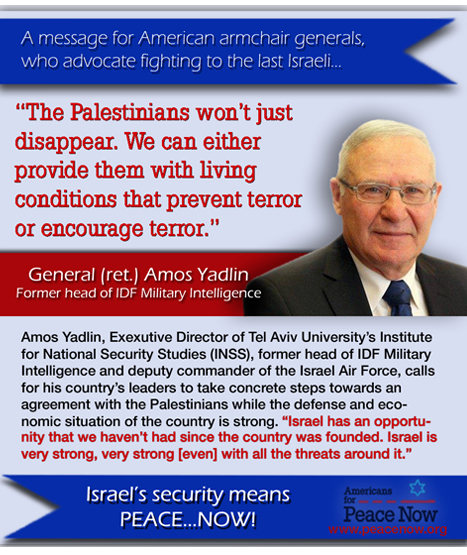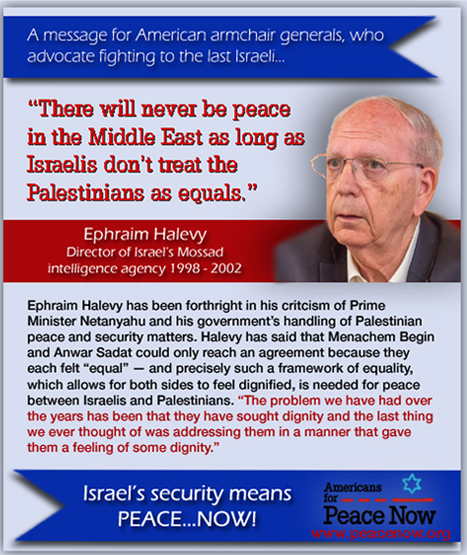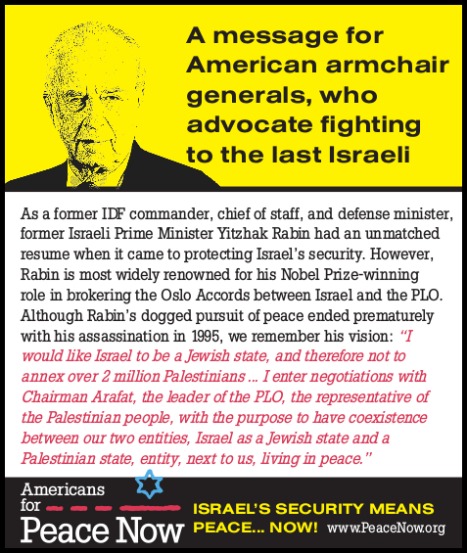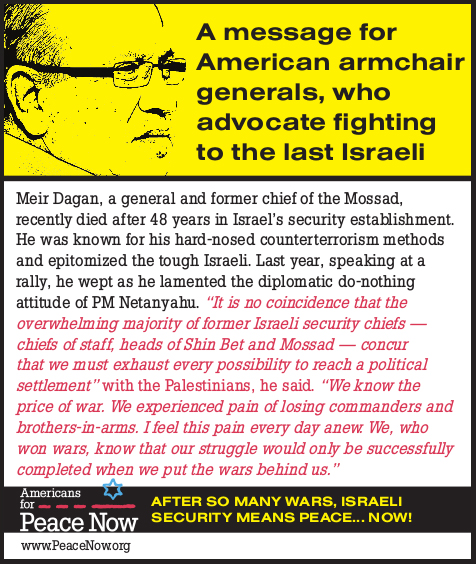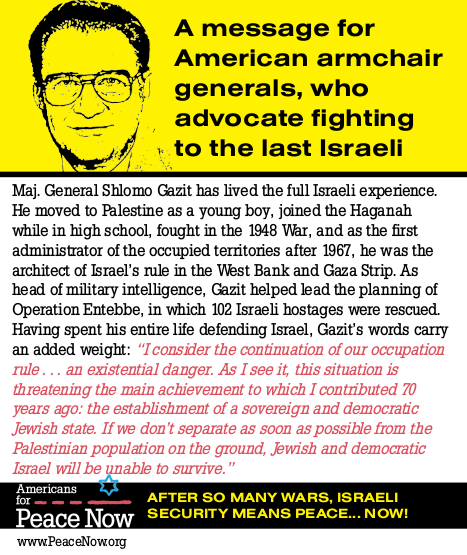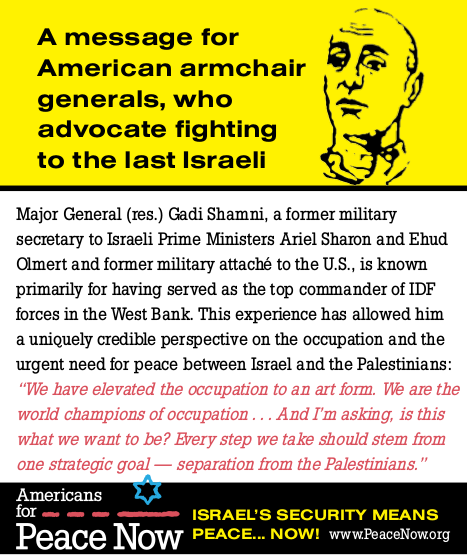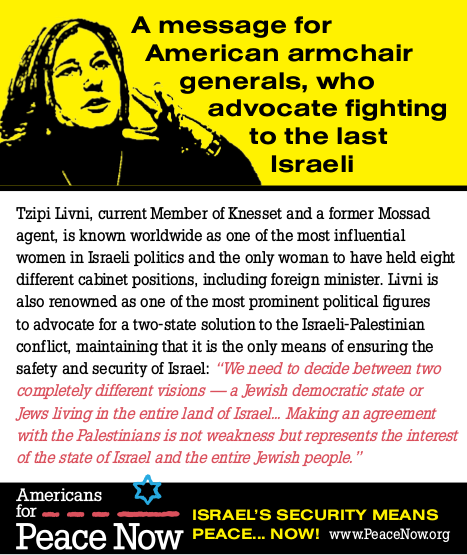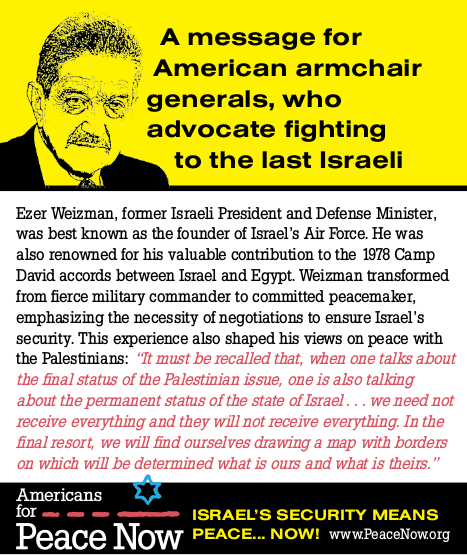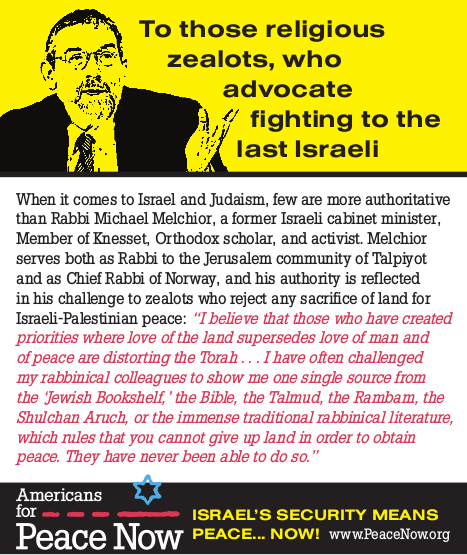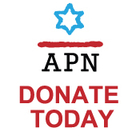--In a conversation with Israeli President Reuven Rivlin, a Palestinian doctor from Gaza, Dr. Izzeldin Abouelaish, compared fear of treatment of disease with Israeli fear of moving towards solving the Palestinian-Israeli conflict. Dr. Abouelaish lost three of his daughters in the first Gaza war 2008-2009.**
APN Weekly Update - Help with our ad campaign, Yitzhak Rabin (z'l), Alpher, and a surprising Quote of the Week
|
"It glorifies violence and desensitizes our children."
--Orthodox educator Shira Hecht-Knoller of the Drisha Institute for Jewish learning, on the video promoting a private modern Orthodox Jewish kids' sports camp in New York by showing children dressed as soldiers crawling through the mud to ambush the enemy and, at the end, an Israeli flag and a sign saying, 'Enlist Now.'**
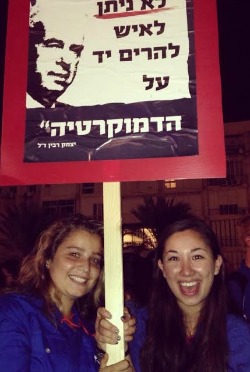 Naomi Tamura is done with empty promises and ready for tangible change
Naomi Tamura is done with empty promises and ready for tangible change
Three years ago, I attended an annual peace rally in Tel Aviv to honor the life and legacy of Yitzhak Rabin, the fifth Prime Minister of Israel and a tireless champion of peace who was assassinated by the anti-peace extremist, Yigal Amir, in 1995. Along with friends from my youth movement, Habonim Dror, I stood in pure awe among a sea of 35,000 fellow peace activists. We wore our blue movement shirts, held posters demanding peace and sang Shir LaShalom - the song Rabin had sung just moments before his assassination. It was the most sobering, yet electrifying experience I had ever been a part of.
This week, as I prepare to honor the 21st yahrzeit of Yitzhak Rabin, I want more than anything to return to that moment. Still clear in my memory, my heart simultaneously aches and blossoms when I recall the feeling of being surrounded by tens of thousands of people, young and old, united by our commitment to peace despite the ongoing violence and incitement. This experience has inspired me to honor Rabin’s legacy in real ways -- how to spread his vision for tolerance, freedom and peace, how to help build a shared future for both Israelis and Palestinians based on these lessons and how to inspire others to join me in doing so.
I am committed to working for peace for several reasons. Next year will mark the occupation’s 50th anniversary. This past week, Netanyahu promised to “continue to take care of settlements in Judea and Samaria,” expressing support for the Israeli settlers whose occupation over the West Bank undermines prospects for peace. The Israeli government has threatened to demolish the Palestinian village of Susya, and has until November 15th to make a final decision. If they decide to move forward with demolition, they will be paving space for more illegal Israeli settlements. And Israel, the beautiful country I called home for nine months after high school, is not living up to its ideals as a just and democratic state- the ideals that form the backbone of both my relationship to Israel and my Jewish identity.
Last week, Jewish Federations of North American (JFNA), an organization representing federations across the United States, opened the door, as a matter of formal policy, to taking Americans to visit Israeli settlements. These are the areas located east of the 1949 Armistice line separating Israel and the occupied territories (aka “the Green Line”) in which Israel has been actively settling its citizens since 1967. This decision, upending longstanding JFNA policy, doesn’t come in a vacuum. Rather, it comes in the context of a campaign to legitimize settlements in the eyes of American law and in the minds of American Jews – contrary to consistent U.S. law and policy since 1967 rejecting the legitimacy of both settlements and the occupation, and contrary to the vital interests of Israel.
Make no mistake: Settlements are the bricks-and-mortar expression of an ideology that prioritizes land over peace, and values the expansion of Israel’s borders over Israel’s democracy, over its security, and over good relations with the world. Generations of Israeli generals and security experts have concluded that a peace agreement with the Palestinians is vital to Israel’s security, and that such an agreement will have to be based on the Green Line, with limited border modifications agreed to by both sides. Continued Israeli settlement expansion and obfuscation of the Green Line threaten the achievement of such an agreement and undermine Israel’s security.
--In his speech at the opening of the Knesset's winter session, opposition and Zionist Camp leader, MK Isaac Herzog, gave scathing criticism of Prime Minister Binyamin Netanyahu's leadership.**
Help our ad campaign go national!
|
||||||||
Yossi Alpher is an independent security analyst. He is the former director of the Jaffee Center for Strategic Studies at Tel Aviv University, a former senior official with the Mossad, and a former IDF intelligence officer. Views and positions expressed here are those of the writer, and do not necessarily represent APN's views and policy positions.
This week, Alpher discusses developments in both Egypt and Lebanon, two of Israel’s Arab neighbors, which appear to reflect a steady expanse of the regional influence of Russia, Syria and Iran, based on their military progress in Syria; what this means for Israel and the US; Egypt's tilt toward Assad; Lebanon's attempt to break an extended political logjam; who gains strategically from all this; where this leaves Israel; and does this affect the Israeli-Palestinian equation.
--Renowned journalist Ari Shavit said in a statement released Sunday announcing that he was resigning from Haaretz and Channel 10.*
